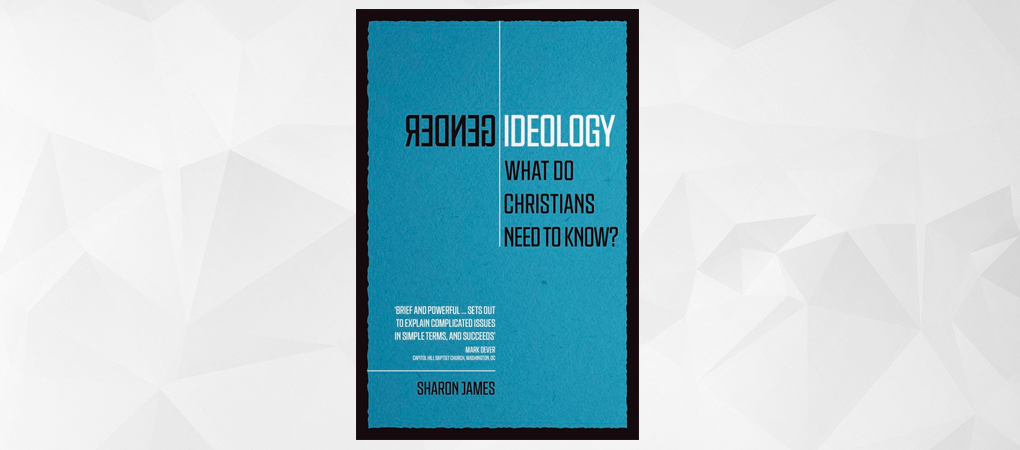Book Review: Gender Ideology: What Do Christians Need to Know?, by Sharon James
December 11, 2019

December 11, 2019
Sharon James, Gender Ideology: What Do Christians Need to Know? Christian Focus, 2019.
In recent years, the sexual revolution has become both the most pressing political issue of our day and one of the most iconoclastic and transformative social phenomena the modern world has seen. Not only has it reshaped notion of marriage but it’s now annihilating even that most basic of assumption, the gender binary. In this context of chaos, two things alone seem certain: that every Christian will at some point be affected by this, whether through work, family, or church; and most, if not all Christians, will find themselves very confused by the whole thing.
Thankfully, good, accessible literature on this matter is now emerging. Gender Ideology: What Do Christians Need to Know? by Sharon James is one such example. Brief in length but broad in scope, it seeks to help the reader grasp some of the history that lies behind the current gender chaos, to explain some of the theoretical underpinnings of transgenderism, to highlight exactly what is at stake for individuals, society, and the church, and to offer some thoughtful reflections on how Christians should respond.
Anyone familiar with literature on gender from the work of Judith Butler onwards will know that it is marked by a penchant for arcane vocabulary, opaque sentence structure, and an overall ethos of Gnostic obfuscation. James cuts through all of that and offers brief but brilliant summaries of its basic foundations, particularly the separation of biological sex from gender. But she doesn’t simply focus on the philosophy; she also introduces the reader to some of the basic science which (surprise, surprise) contradicts what the philosophical theorists would have us believe.
James implicitly operates with a very important principle: the need to distinguish between the personal and pastoral needs of those who are struggling with their gender and the political movement that’s pressing for a comprehensive revision of law and social customs in order to make the gender revolution normative. She’s therefore able to offer loving yet clear advice on how to handle individuals who both need to hear the truth and need support and community as they deal with their issues. At the same time, James points to the vested interests that have been working hard to enforce transgender ideology not because of popular demand but because of various political agendas. She rightly highlights the Yogyakarta Principles—with which readers should acquaint themselves—as providing the basic manifesto for what we now see playing out in society.
In a short book, of course, there are bound to be corners cut and subtle distinctions elided. I’m not so sure as James that Freud is a complete villain. Certainly he is a key player in the modern sexualization of the self. Yet at times, he was far more ambivalent to the notion of sexual license than James allows, and his theory of civilization can certainly be understood in a rather conservative way, as Freudian sociologist Philip Rieff was to do in his own important and helpful philosophy of culture. On this point, she is certainly correct to see Wilhelm Reich and Herbert Marcuse as central in the politicization of sex, but it’s their transposition of Freud into a framework which he would arguably have repudiated that is their great—and deeply destructive—contribution.
But given the book’s aim, these are pedantic quibbles. And given the brevity and clarity of this work, she has done a remarkable job of compressing a vast and complicated subject into a few pellucid pages. By providing further reading, and by listing the names of so many key players, James provides the reader with a map by which to navigate the complicated terrain that is the theory of politicized gender.
This is a book that all Christians will find helpful in addressing a problem with which we will all likely at some point have to wrestle, either socially, politically, pastorally, or personally.